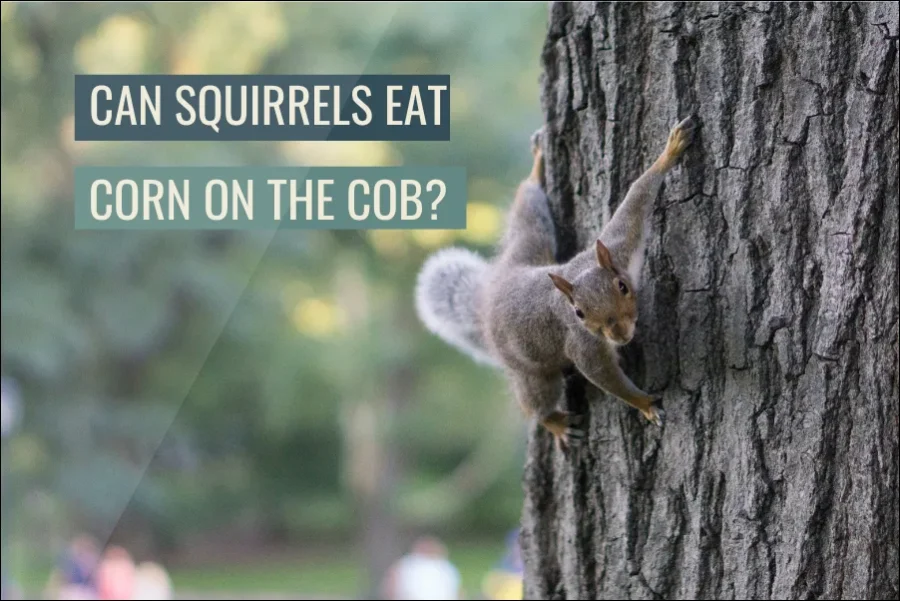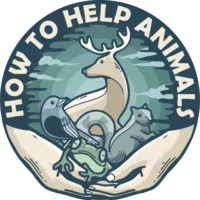
It’s a late summer evening, and you’re cleaning up after a backyard barbecue when you notice a curious squirrel eyeing the leftover corn on the cob. Those bright yellow kernels seem to catch its attention, and you wonder if it’s safe to share this summer staple with your furry visitor.
Squirrels can safely eat corn on the cob. Corn is a natural part of their diet and provides carbohydrates and fiber. However, it should be given fresh and unseasoned, as butter, salt, and other seasonings can be harmful to squirrels.
Is Corn Naturally Part of a Squirrel’s Diet?
Wild squirrels have been eating corn for centuries. In agricultural areas, they’re well-known for raiding cornfields, especially when the kernels are at their sweetest. Corn provides essential carbohydrates that help squirrels build fat reserves for winter survival.
The nutritional profile of corn makes it particularly valuable during late summer and fall when squirrels are actively preparing for colder months. Fresh corn kernels contain natural sugars, fiber, and small amounts of protein that complement their varied diet of nuts, seeds, and fruits.
Nutritional Benefits of Corn for Squirrels
Corn offers several nutritional advantages for squirrels. The carbohydrates provide quick energy for their active lifestyle, while the fiber aids in healthy digestion. Corn also contains small amounts of vitamins A and C, plus minerals like magnesium and phosphorus.
The natural oils in corn kernels help maintain healthy fur and skin, which is particularly important as squirrels prepare for winter weather. Unlike processed foods, fresh corn provides these benefits without harmful additives that could upset their digestive systems.
How to Safely Offer Corn to Squirrels
When sharing corn with squirrels, always provide it fresh and completely plain. Remove all butter, salt, pepper, and other seasonings that humans enjoy but can be toxic to wildlife. Cut the corn into manageable pieces, or simply place the whole cob in your yard where squirrels can access it easily.
Choose organic corn when possible to avoid pesticide residues. If you’re offering leftover corn from your own meal, ensure it hasn’t been sitting out too long, as spoiled corn can cause digestive upset in squirrels just as it would in humans. Unlike chocolate, which is toxic to squirrels, plain corn poses no inherent danger when fresh.
Potential Risks of Feeding Corn to Squirrels
While corn itself is safe, there are some considerations to keep in mind. Corn is high in carbohydrates and lower in protein compared to nuts and seeds that form the core of a squirrel’s natural diet. Too much corn can lead to nutritional imbalances if it becomes their primary food source.
Seasoned or processed corn poses more serious risks. Salt can cause dehydration and kidney problems in small animals. Butter and oils can lead to digestive issues and obesity. Sweet corn varieties are particularly high in sugar, so moderation is key even with fresh corn. This is why bread is problematic for squirrels – processed foods often contain additives that wildlife can’t handle properly.
How Much Corn Should You Give Squirrels?
Corn should be an occasional treat rather than a dietary staple. A few kernels or a small section of cob once or twice a week is plenty for most squirrels. This amount provides the benefits of corn without overwhelming their natural diet. Peanut butter can be offered in similar moderation, though it’s much higher in fat and protein than corn.
Remember that squirrels are excellent at regulating their own intake when offered natural foods. If you notice squirrels ignoring other food sources in favor of corn, it may be time to reduce how much you’re offering.
Dried Corn vs Fresh Corn for Squirrels
Both fresh and dried corn are acceptable for squirrels, but fresh corn is generally preferred. Fresh kernels are easier to chew and digest, making them ideal for younger squirrels or those with dental issues. The higher moisture content in fresh corn also helps with hydration.
Dried corn, often called field corn, is what squirrels typically encounter in the wild during fall and winter. It’s more concentrated in nutrients and calories, making it excellent for cold-weather energy needs. However, dried corn should be clean and free from mold, which can be toxic to squirrels.
Signs That Corn Isn’t Agreeing with a Squirrel
Watch for signs of digestive upset if you regularly offer corn to squirrels in your area. Symptoms might include lethargy, changes in eating habits, or unusual behavior patterns. Healthy squirrels maintain active behavior and normal eating routines.
If you notice any concerning changes in the squirrels that visit your yard, discontinue offering corn and consult with local wildlife rehabilitation experts. They can provide guidance on appropriate feeding practices for your specific area.
Alternatives to Corn for Squirrel Feeding
While corn is safe, squirrels benefit from dietary variety. Consider offering unsalted nuts, sunflower seeds, or small pieces of fresh fruit as alternatives. Grapes can be given occasionally, though they’re much higher in sugar than corn. These foods more closely match their natural diet and provide different nutritional benefits.
Creating a squirrel-friendly environment with natural food sources is often better than regular feeding. Native trees, shrubs, and plants provide year-round nutrition while supporting the broader ecosystem that squirrels depend on.
Seasonal Considerations for Feeding Corn
The timing of corn offerings can make a difference in how beneficial it is for squirrels. Late summer and early fall are ideal times to offer fresh corn, as this aligns with their natural feeding patterns and winter preparation instincts.
During spring and early summer, focus on foods that support breeding and nursing mothers. Understanding when squirrels have babies can help you provide the most appropriate nutrition throughout their reproductive cycle.
Creating a Balanced Feeding Approach
If you enjoy feeding squirrels in your yard, corn can be part of a varied diet that includes multiple food types. Rotate between different safe foods to ensure squirrels receive a range of nutrients and don’t become dependent on any single food source.
Keep feeding stations clean and remove uneaten food promptly to prevent spoilage and pest problems. Fresh water should always be available, especially during hot weather or when offering dry foods like corn.
